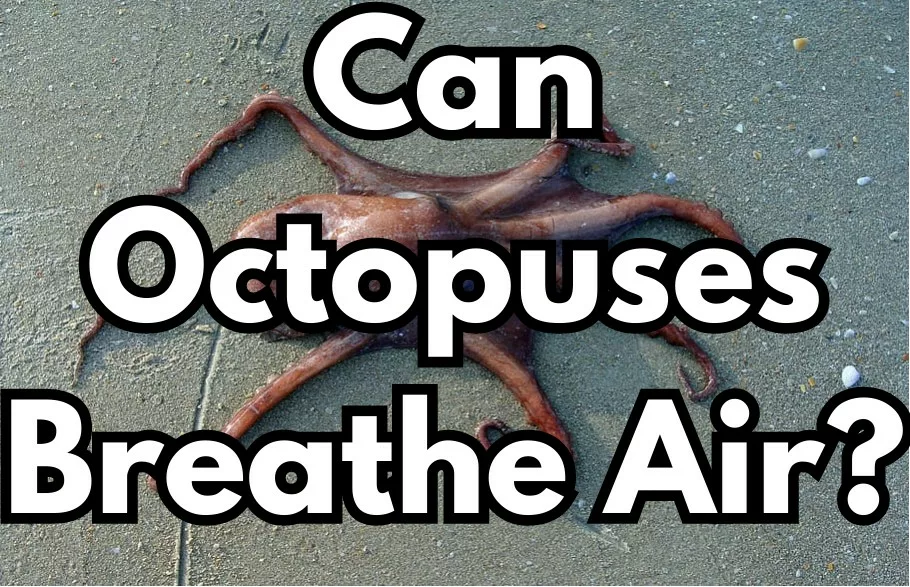Octopuses are known for their incredible intelligence, agility, and ability to change colors. But can Octopuses breathe air? In this article, we’ll dive deep into the world of octopus respiration to uncover the answer to this intriguing question.
Understanding Octopus Respiration
At the most basic level, octopuses breathe like other marine animals: through gills. Their gills are specifically designed to extract oxygen from the water and expel carbon dioxide, a process that’s facilitated by the constant movement of water over the gills.
So, Can They Breathe Air?
In short, no, octopuses cannot breathe air in the same way humans or terrestrial animals can. When out of water, their gills collapse because they are not designed to function in air. The diffusion of gases is also much slower in air than in water, so even if their gills were functioning perfectly, it would still be difficult for octopuses to extract the necessary oxygen.
However, octopuses are known to leave the water for short periods. During these times, they are not “breathing” air but rather holding their breath, much like a human would underwater. Some species are known to venture out of the water to hunt in tidal pools or to escape predators. But this is a temporary situation, and they need to return to the water before they use up the oxygen stored in their bodies.
This BBC video does a good job visualizing them leaving their aquatic home at times:
The Exceptional Abilities of Octopuses
Octopuses are incredibly adaptive animals, with various species displaying a range of unique behaviors that showcase their intelligence and versatility. While they cannot breathe air, their ability to problem-solve, change color and texture, and use tools makes them one of the ocean’s most fascinating inhabitants.
The Importance of Proper Habitat
Understanding the respiratory needs of octopuses is essential, especially for those who keep them in captivity. Ensuring a consistent water flow over their gills, maintaining proper water quality, and providing a habitat that mimics their natural environment can help ensure these creatures thrive.
Octopus FAQ
Q1: Can octopuses breathe outside of water?
A: No, octopuses cannot breathe outside of water. While they can survive for short periods outside of water, they are essentially holding their breath.
Q2: How do octopuses breathe?
A: Octopuses breathe through gills, which are designed to extract oxygen from water and expel carbon dioxide.
Q3: Why can’t octopuses breathe air?
A: Octopus gills collapse when exposed to air, making it impossible for them to extract oxygen. Moreover, gas diffusion is slower in air than in water.
Q4: Are there any octopuses that can breathe air?
A: No species of octopus can breathe air. While some may venture out of the water temporarily, they still rely on their stored oxygen.
Q5: How long can an octopus stay out of water?
A: It varies by species, but in general, an octopus should not be out of water for more than a few minutes. Prolonged exposure to air can be lethal.
With the mysteries of the octopus world still being unraveled, it’s essential to approach these creatures with a sense of wonder and respect. Their inability to breathe air serves as a stark reminder of the specialized adaptations marine life has developed over millions of years.

